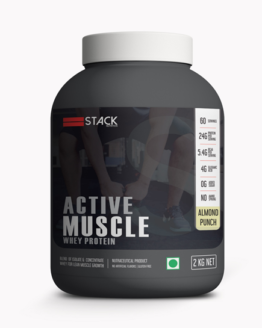Nutrition myths are hard to miss these days, and harder to identify given the trends in Health and Fitness. There have been several popular myths generated in the last two decades, and even after significant advancements in nutrition science, they remain prevalent even today. Let’s take a look at some of the most widely talked about “Nutrition facts” and see how science debunks them.
MYTH: Low-fat or Fat-Free food is healthier
The production of “Low-Fat” food and its marketing is at an all-time high right now. With the common misconception that low-fat food will help in reducing weight, or risk of cancer and heart diseases, people are making it a norm to include these in their diets.
In reality, they do little to ensure good health.
There are now a plethora of studies suggesting that these so-called Low-fat foods do not prevent health complications and might even be harmful since they generally contain high amounts of sugar, salt, and calories that you wouldn’t need. Here’s an abstract that suggests that a low-fat diet does not reduce the risk of cancer in women.
MYTH: Packed fruit juices are a great alternative to eating fruits
Fruits are known to be loaded with essential nutrients, and are very popular superfoods. There are numerous ways of fruit consumption and juicing them is a very common and efficient way due to which, fruit juices are sold by a lot of manufacturers and are heavily marketed. Consumers often tend to buy these because they save a lot of time while offering them the benefits of eating fruits. Some brands even promote their products as being 100% natural and while that might be true, it does not mean that it is equivalent to fresh pressed natural fruit juices. Why, you ask? Because of the heavy amounts of preservatives and sugars added in them, of course. While these alternatives may contain the goodness of fruits, they remain loaded with artificial sweeteners and sugars.
MYTH: Eating less helps you lose weight
Millions believe that fasting is an optimal way to lose weight. But it’s important to understand that the human body is a very complex machine and we haven’t gone through millions of years of evolution for nothing. Simply eating less will not set you on the path to weight loss, and this cannot be stressed enough. Fasting for a big chunk of your day might even lead to weight gain. If you don’t eat for a long while, the body switches to ‘conservation mode’ and significantly reduces metabolism, which results in less energy being burnt and more of it being stored as fat. There’s been multiple scientific studies about this phenomenon, such as this one.
MYTH: Carbs are largely responsible for weight gain
Carbohydrates are a very essential part of a balanced diet. When taken in the right amounts and forms, they are unlikely to make you put on more weight. Certain types of whole grains such as brown rice and the ones found in multigrain bread provide essential carbs required to maintain energy levels throughout the day while also adding a very good amount of fibers.
MYTH: Healthy food is expensive
With health-conscious people increasing the market demand for “healthy foods”, the market is coming up with all sorts of concoctions to satisfy it. Of course, like everything else, the value of these goods increases with increased demand. You don’t need to be consuming all those popular superfoods to maintain a healthy lifestyle. After all, these weren’t a part of everyday diets until now. Eating healthy can be cheap if you know what to look for. Making changes to how you cook can help, and by choosing cheaper alternatives for things like grains and beans, you can reduce the overall cost of the meal.
MYTH: Salt should be completely avoided as it only harms you
Salt is widely believed to increase the risk of cardiovascular diseases, increase blood pressure and susceptibility to strokes. Salt does in fact, have effects on blood pressure but it is normal when taken in recommended amounts as it helps maintain stability in blood pressure. In fact, salt is a very important part of your diet as it is the highest source of sodium in a typical diet. Sodium helps maintain fluid levels in your body and also maintains muscle and nerve function. Of course, too much salt will harm you but as long as you consume less than 6 grams of salt a day.
All you have to do is read the nutrition information on any product label, analyze it and see what’s good for you and you’re good to go. Almost every label has a value of each nutrient clearly shown with the percentage of the recommended daily value shown. You should normally go for food which provide less than 100% of your daily value of nutrients.
Looking to get started on a healthy protein journey? Check out Stack Nutrition’s Active Muscle offerings!

